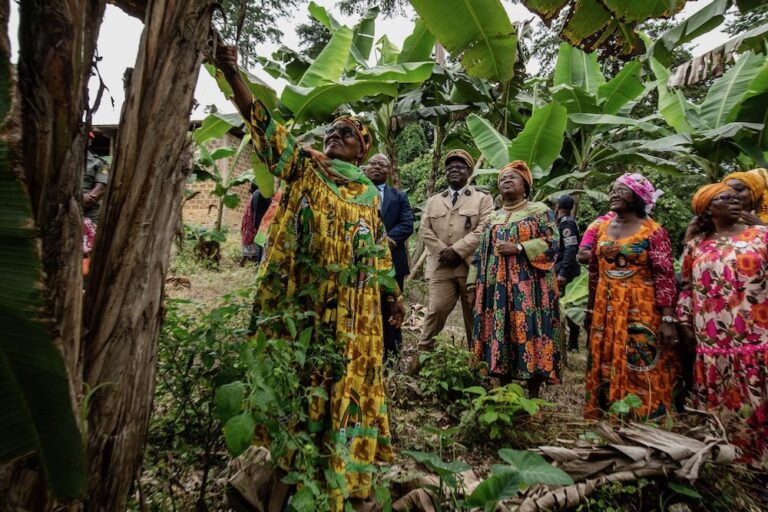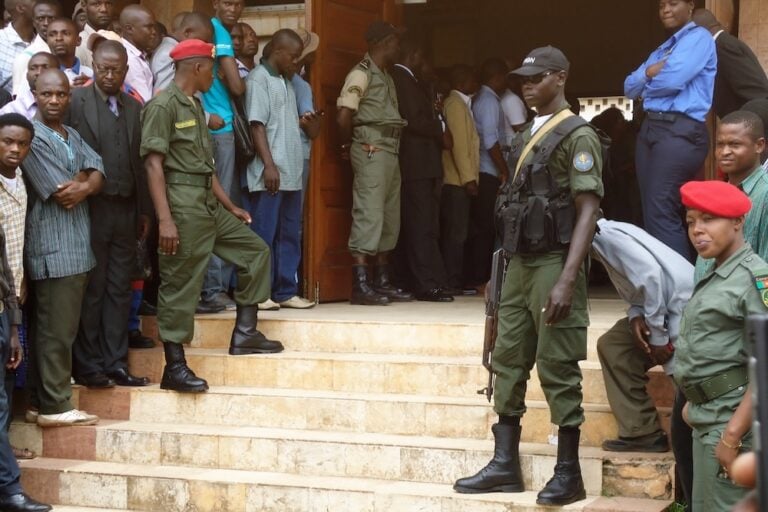(RSF/IFEX) – In a letter to Minister of Communications Jacques Fame-Ndongo, RSF protested the assault of journalist Jean Vincent Djenga Mondo, from the private radio station Magic FM, on 8 December 2001. “This affair is representative of the many problems experienced on a daily basis by journalists from independent media in Cameroon, which are a […]
(RSF/IFEX) – In a letter to Minister of Communications Jacques Fame-Ndongo, RSF protested the assault of journalist Jean Vincent Djenga Mondo, from the private radio station Magic FM, on 8 December 2001. “This affair is representative of the many problems experienced on a daily basis by journalists from independent media in Cameroon, which are a real obstacle to press freedom,” stated Robert Ménard, the organisation’s secretary-general. “This is not the first time that a private journalist has been treated harshly by the president’s security detail simply for having sought to obtain comments from the head of state. This systematic censorship is unacceptable to the Cameroonian people.” The organisation once again recalled that Cameroon has ratified the International Covenant on Civil and Political Rights, Article 19 of which guarantees the “…freedom to seek, receive and impart information and ideas of all kinds…”.
According to information collected by RSF, Magic FM reporter Djenga Mondo was assaulted and threatened by Presidential Security Service (Direction de la sécurité présidentielle, DSP) agents on 8 December. The journalist had approached President Paul Biya in order to interview him during the Third Ordinary Session of CEMAC (Communauté économique et monétaire d’Afrique centrale) member heads of state. He was then attacked by DSP agents, who beat him and threatened him until Edgar Alain Mebe Ngo’o, the director of the president’s civil cabinet, intervened.
RSF also recalled that during the night of 20 to 21 August, a journalist from the private press was assaulted by police officers. While returning from a private dinner, Rémy Ngono, a journalist from the RTS station, was stopped by police officers who took him by force to the police station. Ngono was beaten several times and was only released the following morning. The journalist also claimed that police officers had assaulted him in May. He was accused of criticising the police in his daily programme, “Coup franc”, which is very popular in Yaoundé (see IFEX alert of 27 August 2001).


